Why Student Visa Gets Rejected
Why Student Visa Gets Rejected - Common Reasons and the Follow-ups

What Does Visa Rejection Mean?
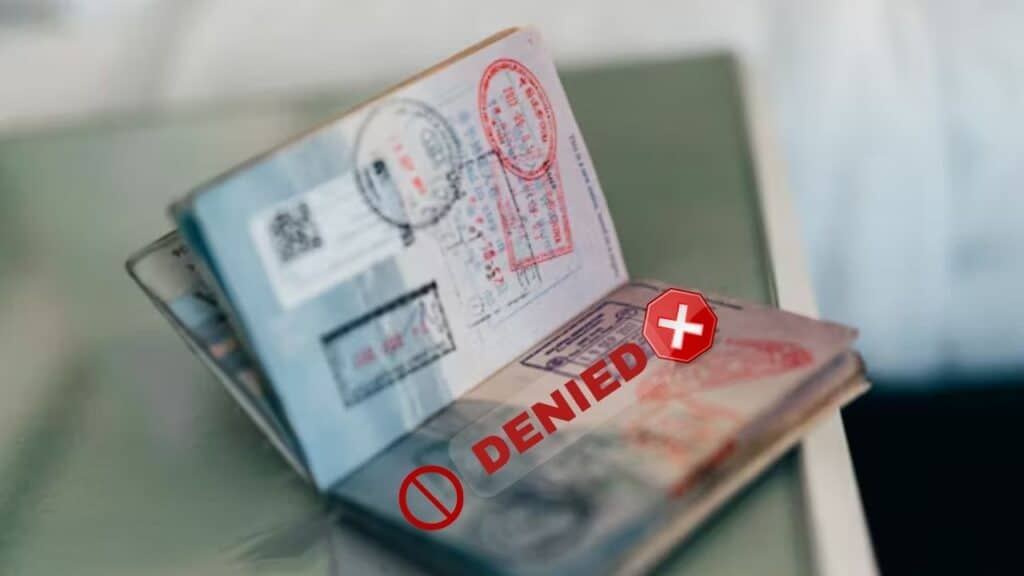
A visa rejection or refusal may occur when the authority of the associated country finds anything against its national or moral code in your application. When a visa gets rejected, the applicant becomes ineligible to enter a country as either his application requires further information or documentation or his application fails to satisfy all the conditions of the authority country. A further application with proper and sufficient documentation will be the only solution in case of a visa rejection. This additional effort will elongate the overall procedure and make the student face extra hassle. If you are in a hurry, it will be best to deal with your visa application with the ultimate caution the first time.
Most Prevalent Reasons Why Student Visa Gets Rejected
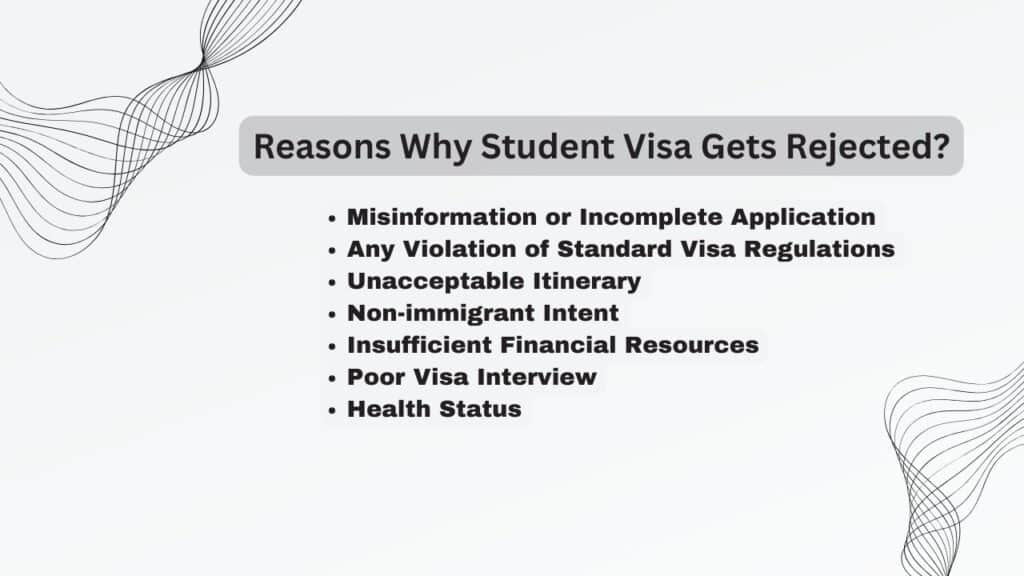
A visa can get rejected for various reasons. From eligibility problems to even simply making a spelling mistake, the reasons for a visa rejection can be minor or severe.
Below are the most common reasons why a student visa gets rejected:
Misinformation or Incomplete Application
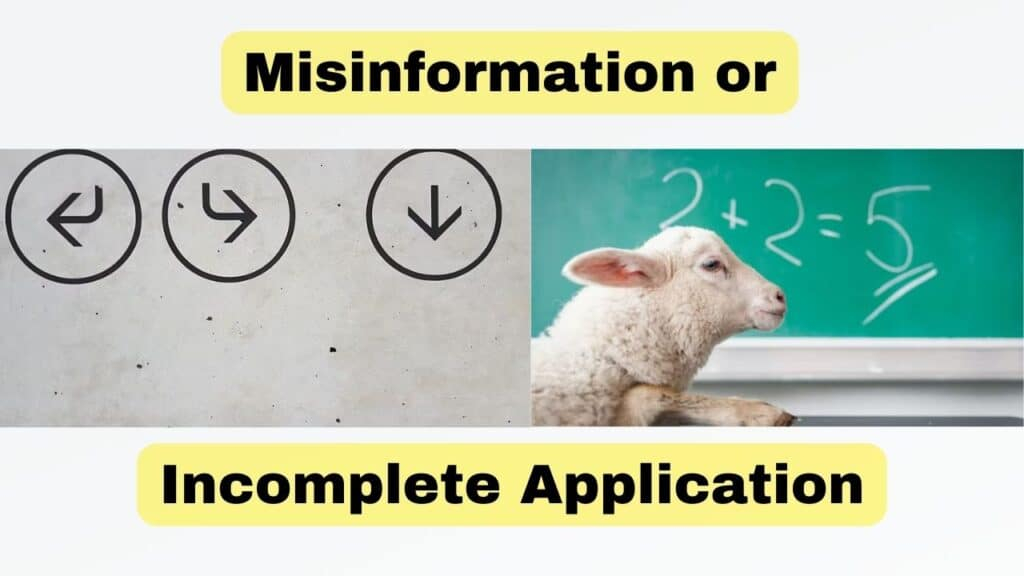
It’s of utmost importance that students take full responsibility for their visa application process. By meticulously providing all the information and completing every requirement, they are in control of their application’s success. The key is to leave no section empty and ensure all obligatory documents are included. This thoroughness significantly reduces the risk of visa rejection, giving students a sense of control over their application.
For any unavailable document, students must check for alternatives. By no means should they submit a fake document
Any Violation of Standard Visa Regulations

Every applicant must abide by the standard rules set by the associated immigration department. Most of these rules concern the documents mandatory for visa applications. These rules also provide specific guidelines describing the processes of an ideal visa application and the types of documents to attach.
Students should carefully read all the rules and regulations from the embassy website. They should also get themselves familiar with the provisions of visiting a country.

For Any Inquery: (880) 1977-706066
By submitting my data I agree to be contacted

- Sakura Japanese Language Academy: located in Sylhet, Sakura Japanese Language Academy offers Japanese language n5 and n4 courses for those people who want to go to Japan for higher education.
Unacceptable Itinerary
Students must submit a complete itinerary that includes:
- Specific plans and times for visiting the country
- Documents of flight and transport
- Receipt or documents of accommodation
Non-immigrant Intent

Insufficient Financial Resources

While most universities ask for and check documents demonstrating an applicant’s financial abilities, a candidate must show proof of his financial freedom during the visa application process. Any finance-related documents, like bank slips, scholarship details, additional funding, etc., must be submitted. Failure to provide these documents will result in a visa rejection.
Poor Visa Interview

The perception of the consular office plays a vital role as they interpret and analyze a student’s answers in the interview. The officer will notice a candidate’s behavior, virtues, and qualities. The answers a student gives will go through evaluation along with their body language and tone. Any rough behavior or rudeness will be fatal for the candidate. Any harm or doubtful implication in a student’s intent will also go against them.
Health Status
If he has to cure remaining infectious diseases or has an ongoing vaccination program record, reject his student visa.

Application Time

What to Do After a Visa Refusal
Conclusion
A visa rejection is heartbreaking. However, like any difficult situation, only a proper after-measure can solve the issue. Before submitting the visa application, learning all the rules and regulations about why student visas get rejected will undoubtedly help. Checking and rechecking the documents with the requirement list will also help. However, the best step will be to get guidance from a veteran visa consultant service that guarantees success.
Why Student Visa Gets Rejected Read More »
what IELTS score is required for Japan
What IELTS Score is Required for Studying or Working in Japan?

Do you want to go to a country of natural beauty like Japan for higher education and a job? Japan is prospering in terms of its educational system and employment, like other countries. But the country is very advanced in terms of education. The inflow of international students to Japan is increasing daily.
If you want to go to Japan for study and work purposes, you can. Before you go, you need to prove your English proficiency test. You can put IELTS on your choices for your English proficiency test. How much is the IELTS score required in Japan? How do you prepare yourself for the IELTS test? In detail here we will discuss all these questions. Along with this, at the briefing, we will share some other unknown information.
Why is the IELTS score important for studying or working in Japan

A good score is required to study or work in Japan. If your score is good, you can quickly climb to the top of your success. Many students from South Asian countries go to Japan for graduate studies every year. You can directly apply to various universities in Japan after completing the high school examination. Universities in Japan offer engineering, business, diploma, undergraduate, postgraduate, and Ph.D. Japanese companies require English skills to work internationally. Through IELTS, we can improve our effective communication in English.
Understanding the different types of IELTS exams

You can find the best universities in Japan that suit your needs through IELTS. You must take the IELTS exam depending on your study and work. There are two types of IELTS for reading and work: IELTS Academic and IELTS General Training. Taking the Academic IELTS for research or a job in Japan is advised. One or more take general modules in the field of organization or job. In that case, you must know their requirements.
What is the minimum IELTS score required to study in Japan?

Studying in Japan would help if you had an IELTS score of 6.0. It differs depending on the institution and the subject. There are sometimes specific test requirements for every portion of the IELTS exam. You have to fulfill their requirements. You can select a university according to your points. You should always aim to get maximum marks, and you will be safe.
What is the minimum IELTS score required to work in Japan?

IELTS test scores for work purposes in Japan may vary depending on the job. In some cases, they may not specify. In that case, you must contact the company or organization you want to work with for English language requirements.

For Any Inquery: (880) 1977-706066
By submitting my data I agree to be contacted
- Sakura Japanese Language Academy: located in Sylhet, Sakura Japanese Language Academy offers Japanese language n5 and n4 courses for those people who want to go to Japan for higher education.
Which scholarship to go to Japan?

In Japan, scholarships contribute to the development of the wider world. There are many scholarship systems in Japan, among which MEXT is the most popular and has many benefits. If you want to go for higher education in Japan, you must take the MEXT scholarship. IELTS will help you to get the scholarship quickly.
How to prepare for the IELTS exam

- Understanding the exam pattern is a universal key to success in all exams, including IELTS. Please familiarize yourself with it to enhance your preparation. The IELTS exam has a specific time limit. Familiarize yourself with that time frame. The better your exam speed, the more successful you will undoubtedly be.
- Review your position through a mock test. Identify any areas that need improvement.
- Do everything in English, including reading English magazines, online magazines, vlogs, etc. Speak English with friends and others who speak English.
Basic mistakes to prevent in the IELTS exam

- Pay meticulous attention to spelling to avoid common mistakes in IELTS. Spelling accuracy is a crucial factor in your IELTS score. Avoid guessing and use synonyms when necessary to enhance your vocabulary building.
- Increase your writing speed according to the exact time required for each question. Also, give a small question first. Doing so will give you a little more time to answer the big questions.
- They are using more transition words. Transitional words make sentences smoother. For example, however, and, besides, actually using such words.
- It would help to focus on each stage, especially listening and speaking. Never apply rote learning.
- Only include the necessary information to make the question longer.
Additional language proficiency requirements in Japan

Conclusion
The IELTS exam requires tireless effort and proper guidelines. Remember that the following days will be the key to fulfilling your dreams once you are successful. You will always be thinking about achieving a higher IELTS score than required. By doing this, you can survive in today’s competitive market. Start your IELTS journey today without delay.
what IELTS score is required for Japan Read More »
can i study in japan after 12th
Open the Doors to Education to Studying in Japan After 12th Grade
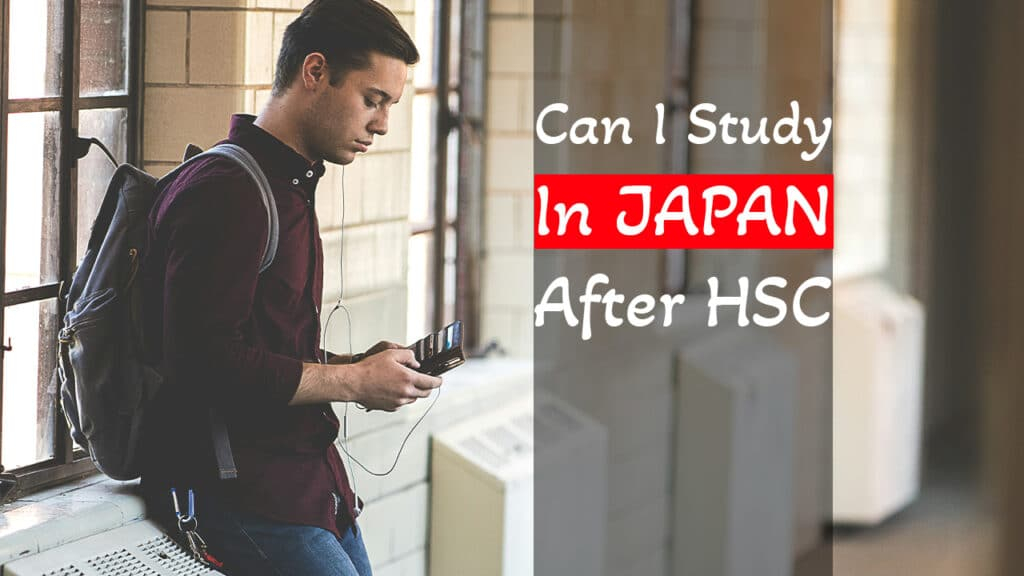
The education system in Japan

Japan’s education system is one of the best in the world. In it, students learn behavior, ethics, socialization, trust, morals, character building, and respect.
Japan’s class system:
- Nursery (0-5 years old)
- Kindergarten (4-5 year old)
- Elementary school (6-11 year old)
- Junior high school ( 12-14 year old)
- High school (15-17 years old)
- University (18-21 year old)
Below is the information about the education system in Japan:
- Japan schools don’t have janitors
- Student art trained to self-defense
- Zero delays in attending school on time
- Students and teachers still work even during school vacations.
- There are no exams for the first ten years of work on manners
such as;
- April 1- July 20
- September 1- December 26
- January 7-March 25
Choosing the right university in Japan

Japan is one of the world’s most developed countries and has a long history of education. In Japan, there are more private institutions than national ones, as well as public universities and junior colleges. Undergraduate-level universities include 86 national, 101 public, and 620 private. Junior colleges are more private than public: 14 public and 295 private.When selecting a university in Japan, it is essential to consider various factors, such as the institution’s reputation. Identify your academic interests and career goals, find universities related to your areas of interest, and consider factors such as faculty expertise, research opportunities, and alumni networks, as these can significantly influence your educational experience and prospects.
Application process for studying in Japan

The application process for studying in Japan may vary depending on your chosen university and program. Although the specifics vary, most applications follow these general steps.
- Application form (duly filled up)
- Passport and One photo (2 inch X 1.4 inch)
- Certificate of Eligibility (C.O.E.)
- Admission certificate from a Japanese language school in Japan
- Receipt for admission/tuition fee from Japanese language school)
- Certificate of Japanese Language Proficiency Test N1-N5 (if you have one)
- Japan Language certificate from language schools in Bangladesh
- student minimum Academic Certificate, Registration Card, Mark Sheet of S.S.C. and H.S.C.
- Valid airline booking slip
- Bank Statement for six months from a financial supporter.
- Tax certificate & paid amount receipt for three years from a financial supporter.
- Family tree with necessary passport copy /N.I.D. card/ Nikahnama to prove the relationship with financial supporter ( if the supporter is not your parents)

For an Inquiry about Japan: (880) 1930-350350
Part-time work opportunities for international students

- Restaurant
- Language teacher
- Factory worker
- Sales
- Cleaning
- Delivery
- Teaching or research assistant
Conclusion and next steps
Remember to immerse yourself in the rich Japanese culture, embrace new experiences, and make lifelong connections. Studying in Japan offers a world-class education and a chance to broaden your horizons, develop a global perspective, and create memories that will last a lifetime.
Best of luck.
can i study in japan after 12th Read More »
why ielts is necessary
Why your IELTS is Necessary
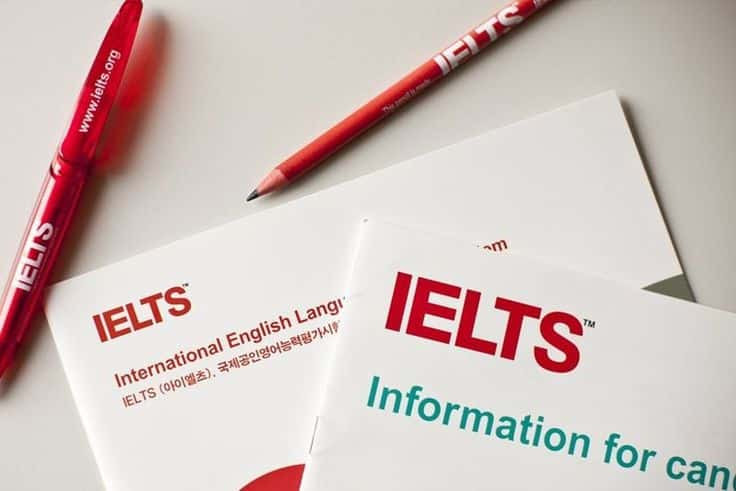
Proficiency in the English language is very important in modern times. One of the accepted criteria is IELTS. Every year, the number of candidates participating in the IELTS exam increases. More than 4 million IELTS tests were taken worldwide in 2023. Now, everyone may be wondering what IELTS is and why it is necessary. In this article, we will explore this topic
What is IELTS?
The international test that tests your English language skills is called IELTS. There are two types of IELTS: 1. Academic IELTS and 2.General Training IELTS(GT).
What is Academic IELTS for?
Those who want to study abroad mainly participate in Academic IELTS. Academic IELTS is for complete students. If you want to study abroad, be it Graduation, Master’s, or PhD, you must always sit for Academic IELTS.
What is General Training(GT) IELTS for?
General Training IELTS is especially for those who want to go to English-speaking countries such as the USA, UK, Canada, Australia, and New Zealand to live permanently or to work in these countries mainly do General Training IELTS.
In IELTS what subjects are tested on?
The IELTS test consists of four subjects: Listening, Speaking, Reading, and Writing. It has no marks, but band scores are awarded between 0 and 9. A student should get a minimum score of 5.5 out of 9 if he wants to go abroad.
Who can take the IELTS test?
Since IELTS is an English proficiency test, anyone can take it. However, the candidate appearing in this examination must be at least 16. People of any age can take the IELTS exam starting from 16.
Why IELTS are important
When you hear the word IELTS, you think it means studying or working abroad. Nowadays, English is essential in every field. Below are the reasons why IELTS is necessary in each sector.
- Online jobs: English plays a vital role in online jobs. People primarily do online jobs in foreign countries. English is the only medium through which they can communicate, so proficiency in English plays a vital role. And IELTS helps us to be proficient in English. Below are some online job sectors.
- Digital Marketing
- SEO Content Writing
- Blog and Article Writing
- Call Centers
- Freelance Platforms
- Software Development
- Remote Customer Support
- Technical Writing
- Online Tutoring
- Global Collaboration
- Educational Opportunities: Achieving a satisfactory IELTS score is often a prerequisite for students seeking university admission abroad. The test prepares candidates for the academic challenges they will face in higher education. All foreign institutes prioritize IELTS scores as part of their admission criteria.
- Immigration and Employment: People prefer IELTS for immigration to Canada, Australia, the USA, New Zealand, and the UK. Even if you want to work in a foreign country, you must be proficient in English to communicate. IELTS is preferred to improve English communication skills.
Building Confidence: Preparing for the IELTS can also boost candidates’ confidence in using English. The structured nature of the test helps individuals practice and refine their language skills, which is particularly beneficial for those who may have previously struggled with speaking or writing in English. This increased confidence can lead to better participation in academic and workplace settings.
Global Recognition and Acceptance
English has made every country and every field of work easier in today’s era of globalization. To keep pace with this era of globalization, we need to communicate in English. English is one of the ways of communicating. So, there is only one option: to be proficient in English. The test to check how well you speak English is called the IELTS test. The IELTS test was recognized worldwide in 1989. More than 11,000 organizations worldwide have chosen IELTS for English proficiency testing. Over 3.5 million people choose IELTS to open doors worldwide, and more than 140 countries accept IELTS scores
Importance of IELTS for international students

IELTS not only helps students in foreign countries for admission but also greatly helps in communication during studies. For example, understanding lectures, participating in discussions, writing academic papers, talking to everyone, understanding what people say, and being proficient in English is very important. English is vital in helping students communicate if they go for a part-time job in a foreign country.
Benefits of having a good IELTS score

A good IELTS score will help you get admission to your dream university, move to your dream country, and get a good job. In the era of globalization, people give a lot of importance to communication skills. Good communication skills provide many job opportunities in the global market. A high IELTS score increases the chance of immigration to countries like Canada, Australia, and New Zealand.IELTS offers the chance to improve life and career in English-speaking countries.
IELTS is used for immigration purposes

IELTS is widely recognized and accepted by immigration authorities worldwide as a measure of English language proficiency. Many countries, including Canada, Australia, New Zealand, the United Kingdom, and the United States, use IELTS scores as part of their immigration requirements if you want to prove your English skills to immigration officers, an IELTS score will help.
If anyone wants to improve their career by doing IELTS or want to study abroad then Meiji Education is with you.For more details about ielts courses and mock tests, contact Meiji Education.
Best of luck on your IELTS journey!

For Any Inquery: (880) 1977-706066
By submitting my data I agree to be contacted
- Sakura Japanese Language Academy: located in Sylhet, Sakura Japanese Language Academy offers Japanese language n5 and n4 courses for those people who want to go to Japan for higher education.
why ielts is necessary Read More »
IELTS tips for listening
IELTS Listening Made Easy: Step-by-Step Tips

There are four sections in the International English Language Testing System (IELTS), of which listening is one. If you want to achieve a high score in the listening section, this is the article for you.
The IELTS Listening section can be challenging, but with the insider tips and techniques we’re about to share, you’ll be well-prepared to tackle it confidently. In this article, we will provide valuable strategies to improve your listening skills and maximize your performance in the exam.
So, whether you’re a beginner or already have some experience with the IELTS exam, this article is your key to achieving success in the Listening section. Let’s get started!
Understanding the Format and Scoring of the IELTS Listening Section

IELTS listening is the same in both academic and general training exams. It lasts 30 minutes and includes 40 questions, split into four sections. Excel in this section, but it’s crucial to understand the format and scoring system. The Listening section is worth 25% of your IELTS score, and the recordings are played only once. Therefore, it’s essential to listen attentively and manage your time effectively.
Band score | Questions answered correctly out of 40 |
5 | 16 |
6 | 23 |
7 | 30 |
8 | 35 |
As you progress through the test, the questions get more difficult. You need to answer seven questions correctly to get 8 or 30 questions to get 35 questions.
Common Challenges Faced by Test-Takers in the Listening Section

The main disadvantage of listening to IELTS is the lack of time, so we will discuss how to manage your time more effectively during this exam.
IELTS listening is a hard test. It is challenging to understand what they’re saying in their recording. Still, because you need to listen, read, and write almost simultaneously, it tests your concentration and ability to manage your time.
The recordings feature speakers from different English-speaking countries, such as the United States, Australia, and the United Kingdom. Familiarizing yourself with these accents through exposure and practice can help improve your comprehension.

For Any Inquery: (880) 1977-706066
By submitting my data I agree to be contacted
- Sakura Japanese Language Academy: located in Sylhet, Sakura Japanese Language Academy offers Japanese language n5 and n4 courses for those people who want to go to Japan for higher education.
Tips for Improving Listening Skills

- Listen to Authentic English Material: Regularly expose yourself to authentic English material, such as podcasts, movies, TV shows, and news broadcasts. It will help you familiarize yourself with different accents, vocabulary, and speech patterns.
- Practice Active Listening: Focus on understanding the main idea, supporting details, and the speaker’s purpose. Train yourself to identify specific information such as name, number, and location, as these often appear in questions.
- Expand Your Vocabulary: Learning new words and phrases improves your vocabulary. It will not only enhance your understanding of the recording but also enable you to express yourself more effectively in the speaking and writing sections of the exam.
- Take Advantage of Practice Tests: To evaluate yourself, take more exams to familiarize yourself with the questions and environment. Use the official IELTS practice materials and online resources to assess your progress and identify areas for improvement.
Practice Materials and Resources
- Official IELTS Practice Materials: The official IELTS practice materials provide authentic examples of the Listening section and give you a sense of what to expect on test day. These materials include audio recordings, transcripts, and sample answers.
- Online Listening Exercises: Various websites offer free listening exercises specifically designed for IELTS preparation. These exercises cover a range of topics and question types, allowing you to hone your skills and gain confidence.
- IELTS Preparation Courses: Enroll in an IELTS preparation course, either online or in-person, to receive expert guidance and structured practice. These courses often include simulated practice tests and personalized feedback to help you improve your performance.
Techniques for Tackling Different Question Types in the Listening Section

The IELTS Listening section features a variety of question types, each requiring a different approach. Here are some techniques to tackle the most common question types:
- Multiple Choice Questions: Read the options before listening to the recording to understand what you need to listen for. Focus on keywords and eliminate incorrect options to narrow down your choices.
- Matching Questions: Pay attention to the instructions and the information given in the recording. Look for keywords, synonyms, and paraphrases to match the correct options.
- Form Completion Questions: Skim through the form or notes provided before listening to get an overview of the information required. Listen carefully for specific details and fill in the gaps accordingly.
- Sentence Completion Questions: Read the incomplete sentence carefully and predict the missing information based on the context. Listen attentively for the relevant information to complete the sentence.
Conclusion
With dedication and perseverance, you can conquer the IELTS Listening section and achieve your desired score. So, start implementing these tips and techniques today and take a step closer to your IELTS success!
Good luck on your IELTS journey!
IELTS tips for listening Read More »
Is IELTS Difficult

Is
IELTS
Difficult?
Deciphering
the
Myth Behind
Generally, the IELTS appraisal is a rare test. It’s the most permissive language proficiency test in the world, so it carries a certain standard for preparation. Writing and Speaking tests, common myths and truths, and what to expect on test day are delivered.

Enigma of IELTS Challenges
Index that the challenges are instantly apparent or smoothly understood. Using this topic suggests a process of release and realization of these challenges. This unique angle commits readers to exploring the complex nature of IELTS difficulties, offering insights and understanding that may not be readily available elsewhere.
Insider Secrets To Mastering
Your proper planning makes it easy to achieve a high band score. Suppose you are planning to go abroad, opportunities, language skills. The best way is bellowed –
- Develop your English concept
- Improve your reading and listening skills
- Improve speaking skills
- Proper use of your time, and consider
- Be understand task


A Fresh Perspective on Overcome
Your essential preparation will help establish your skills. Which path should you take, and what should you do? If you know your weaknesses, you can work on them and make yourself strong. This will generate a strong grounding for the examination. If you consider a high score in the IELTS exam, there is no substitute for English grammar.
Some Misconceptions which we follow
We following some misconceptions that are given below –
- Having a native accent is necessary to score better
- Speaking test entirely before the time
- Good polite and pretty will improve your IELTS score
- Use short and simple sentences; there will be fewer mistakes
- You can’t ask a question multiple times.

The way of Dealing with difficulties
The written parts are complex. So, you should consult a good advisor who knows about IELTS, and he can provide you with these instructions. If you don’t know English well yet, you will probably face many difficulties. Now, we describe how to deal with problems.

Relaxation and shorts technique

- Active Listening Exercises
- Creative Visualization
- Know the vocabulary
- Develop your reading skills

Opportunities for Growth
A good IELTS score is an excellent opportunity for growth. This score helps you focus on your goals and can lead to career development opportunities; you should learn from your mistakes, solve them, and move forward fully.
Is IELTS Difficult Read More »
what is ielts course
Unlocking Global Gateways: The Essence of an IELTS Course

In the heart of Bangladesh, where dreams stretch beyond borders, the IELTS course stands as a beacon for aspirants eyeing the global stage. It isn’t just an academic endeavor; it’s a voyage into the vastness of the English language, a journey that molds dreamers into achievers.
The IELTS Course Decoded
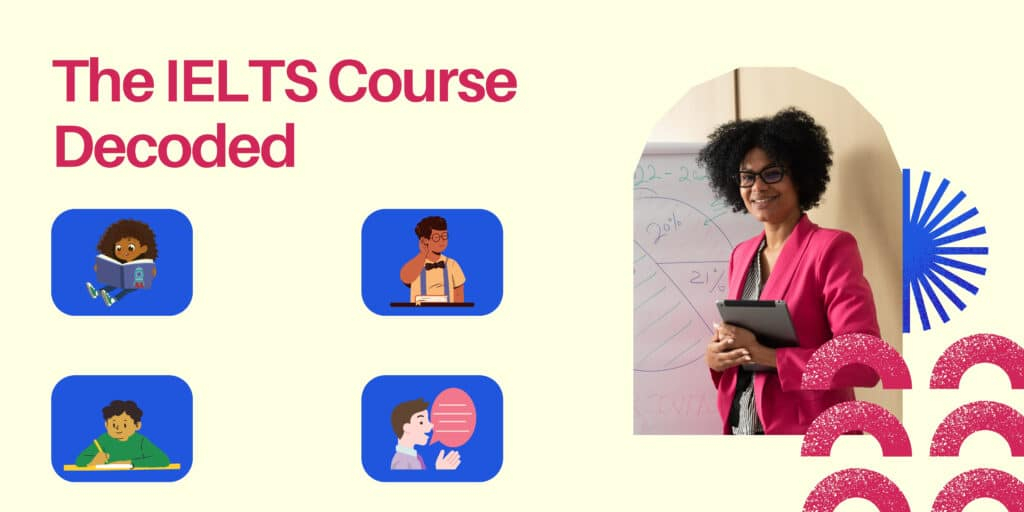
An IELTS course is meticulously crafted to prepare candidates for the IELTS exam, a pivotal step for anyone looking to study, work, or migrate to English-speaking countries. Unlike general English learning programs, this course zeroes in on enhancing proficiency across listening, reading, writing, and speaking skills. However, the true essence of the course lies in its ability to imbue learners with critical thinking and comprehensive understanding, preparing them not just for the exam but for a future filled with global interactions.
Beyond the Books: The Unseen Perks for Bangladeshi Students
For Bangladeshi students, an IELTS course is the key to unlocking a treasure trove of opportunities. Take a look at the vast array of advantages:
Academic and Professional Leverage
Achieving a high IELTS score can dramatically elevate your profile for international universities and global job markets. It’s a testament to your English proficiency, often a decisive factor in admissions and employment scenarios.

Cultural Immersion and Adaptation
The course doesn’t just teach English; it immerses you in the linguistic and cultural nuances of English-speaking environments, easing future transitions and fostering global connectivity.

Tailored Learning Journeys
With a blend of traditional and digital learning resources, IELTS courses offer personalized pathways, focusing on individual strengths and areas for improvement, paving the most efficient route towards exam success.


For Any Inquery: (880) 1977-706066
By submitting my data I agree to be contacted
- Sakura Japanese Language Academy: located in Sylhet, Sakura Japanese Language Academy offers Japanese language n5 and n4 courses for those people who want to go to Japan for higher education.
The Meiji Education Difference
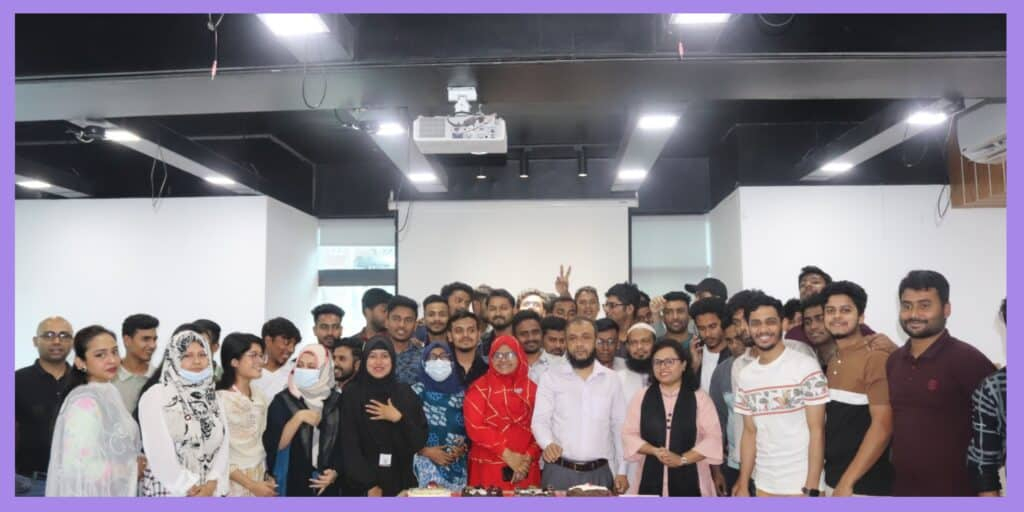
In the realm of IELTS preparation, Meiji Education emerges as a trusted ally for Bangladeshi students. Specializing in tailored learning strategies, Meiji Education empowers students to surpass their IELTS goals, setting a solid foundation for their international aspirations.
Charting Success: The IELTS Course Impact
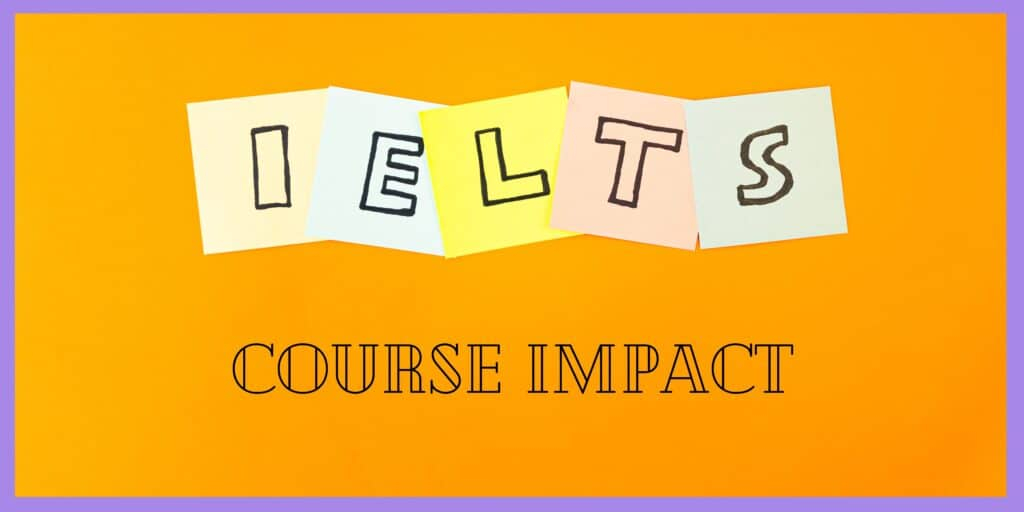
Embarking on an IELTS course signifies more than exam preparation; it’s a commitment to unlocking your global potential. It equips Bangladeshi students with the skills needed for academic and professional excellence, ensuring they stand out in a competitive world.
Conclusion: Your Journey Begins Here

The decision to undertake an IELTS course is the first step on a transformative journey toward global opportunities. With the support of institutions like Meiji Education, achieving the highest IELTS band score becomes not just a goal but a reality. As you contemplate this journey, consider the vast horizons that await. Are you ready to embrace the challenge and turn your global aspirations into achievements?
For more insights into the IELTS course and how it can shape your future, explore the British Council’s IELTS information and IDP’s IELTS Guide. These resources offer comprehensive details about the course structure, benefits, and preparation tips, helping Bangladeshi students navigate their path to success with confidence.
what is ielts course Read More »
student visa to australia
A Student Visa to Australia: Paving the Way to Success with Every Step

Are you dreaming of studying in Australia? Our guide has everything you need to know about obtaining a student visa. From visa types to the application process, we’ve got you covered. Plus, we’ll provide insider tips on work rights and health insurance. Let’s make your dream a reality – join us on this incredible adventure!
Types of student visas available

Australia offers different student visa options to meet various educational needs. It is essential to understand the available types of visas to choose the most suitable one for your situation.
- Student Visa(Subclass 500): This is the most common visa for full-time study in a registered course. It suits higher education, vocational education, English language, or non-award courses.
- Student Guardian Visa (Subclass 590): For parents or relatives of a student under 18 studying in Australia. It allows you to accompany the student and provide care and support during their stay.
- Training Visa (Subclass 407): This visa is for individuals seeking workplace-based training in Australia. It suits occupational training for registration, skill development, or professional growth.
Applying for a Student Visa: Simplified Step-by-Step Process

- Research: Research and choose a course that aligns with your goals and interests. Consider factors such as reputation, location, course structure, and tuition fees.
- Submit Your Application and Get Accepted: Once you’ve decided on a course, submit your application for admission. If accepted, you’ll receive an acceptance letter from the institution.
- Get all documents: Get all the necessary documents for your visa application, including your passport, offer letter, English proficiency proof, financial documents, and health insurance coverage.
- Create an Immi Account: Create an Immi Accounton the official Australian Department of Home Affairs website to begin your student visa application. This account lets you quickly complete and submit your application online. It’s convenient and straightforward.
- Fill out the Visa Application Form: Provide accurate and up-to-date information while completing the student visa application form. Take your time and double-check all details to ensure accuracy.
- Pay The Application Fee: Remember that there is a non-refundable fee for the student visa application. Pay this fee when you submit your application, as the amount may vary based on the visa subclass and processing location.
- Health Examinations and Insurance: Remember to get a health examination and insurance coverage before applying for a visa.

For Any Inquery: (880) 1930-350350
By submitting my data I agree to be contacted
- Sakura Japanese Language Academy: located in Sylhet, Sakura Japanese Language Academy offers Japanese language n5 and n4 courses for those people who want to go to Japan for higher education.

For an Inquiry about Australia: (880) 1930-350350
By following these simplified steps, you can easily navigate the student visa application process.

- To be eligible for an Australian student visa, you must enroll in a registered course first. It means you must receive a Confirmation of Enrollment (CoE)from a recognized educational institution in Australia. This document serves as proof that you have been accepted into a course and outlines the length of your study.
- Besides enrolling in a registered course, you must demonstrate that you have the financial means to support yourself throughout your studies. It includes covering your tuition fees, living expenses, and any costs for accompanying family members. The specific financial requirements will depend on the length of your course and the number of family members joining you.
- Furthermore, depending on the course you plan to pursue, you might need to prove your English language proficiency. One way to demonstrate proficiency in the English language is to take internationally recognized tests like IELTS or TOEFL.
Please meet these eligibility criteria before applying for an Australian student visa.
Here are some tips to help make your visa application successful
- Initiating the application process well in advance is recommended to ensure sufficient time for any unforeseen delays.
- Make sure all details on your visa application match your supporting documents.
- Double-check your financial documents to ensure they meet the required criteria.
- Maintain open lines of communication with your chosen educational institution to stay updated on any additional requirements or changes to the visa application process.
- Seeking professional advice if you require clarity on the visa application process is recommended.
If you want to apply for a student visa to Australia, here are the steps you need to follow:
- Gather necessary documents: passport, CoE, proof of financial capacity, English language test results, and health insurance coverage.
- Sign up for an ImmiAccounton the Department of Home Affairs website.
- Complete the online application form with precision and honesty.
- Pay the visa application fee using a credit card or PayPal.
- Apply and wait for a decision, which may take several weeks.
Required documents for student visa application?

- A valid passport that covers the entire duration of your planned stay in Australia. Remember to include scanned copies of the biodata page and any pages with visa labels or immigration stamps.
- Confirmation of Enrollment (CoE)issued by your Australian educational institution, confirming your acceptance into a registered course.
- Financial documents to demonstrate your ability to cover tuition fees, living expenses, and accompanying family members’ costs. Examples include bank statements, income statements, or scholarship certificates.
- Test results for English language proficiency if required by your course. Ensure that the results are within the specified validity period the educational institution sets.
- Proof of Overseas Student Health Cover (OSHC), as it is mandatory for all international students in Australia. Ensure you provide documentation of your OSHC coverage when applying for the student visa.
Australian student visa financial requirements

Involve demonstrating that you have enough funds to cover your tuition fees, living expenses, and potential healthcare costs. The specific financial requirements depend on the length of your course and the number of family members accompanying you
- Tuition Fees: To meet the requirements, you must have sufficient funds to pay your course fees throughout your study period. The exact amount you must pay for your chosen course may vary based on the educational institution you select.
- Living Expenses: According to the Australian government, international students typically need around AUD 21,041 annually to cover their living expenses. This amount includes accommodation, food, transportation, and other personal expenses.
- Healthcare Costs: It is mandatory to have Overseas Student Health Cover (OSHC) for the entire period of your stay. The cost of OSHC will depend on the provider and the level of coverage you select.
Working while studying on a student visa

Studying in Australia offers the advantage of working part-time while pursuing your education. However, there are specific restrictions and conditions that you need to follow when working on a student visa.
- Work Limitations
Students max work 40 hrs/fortnightin academic year. However, you can work unlimited hours during scheduled breaks like summer or winter holidays. - Workplace Rights
Knowing your workplace rights and ensuring you receive fair wages are crucial. The Fair Work Ombudsman informs Australian employees of their rights and responsibilities.
Conclusion
Achieving your educational dreams in Australia requires obtaining a student visa, a vital milestone in your journey. Submitting complete and accurate paperwork can enhance your chances of a successful visa application. Start your remarkable adventure of learning and immersing yourself in a vibrant and diverse culture by securing your student visa to Australia today!
student visa to australia Read More »
South Korean scholarship for Bangladeshi students
From Bangladesh to South Korea: Exploring the Thriving World of Scholarships for Bangladeshi Students

From Bangladesh to South Korea, the world of scholarships is opening doors for Bangladeshi students like never before. The journey from the bustling streets of Dhaka to the vibrant campuses in Seoul is now within reach, thanks to the thriving scholarship opportunities available.
Scholarships have become a game-changer for Bangladeshi students seeking higher education abroad. With a range of options available in various fields of study, these scholarships present an incredible chance for talented students to pursue their dream education in South Korea.
This article explores the diverse range of scholarships that Bangladeshi students can apply for, and the steps they need to take to make their dreams a reality. From government-sponsored programs to university-specific awards, we dive into the various avenues to securing funding for education in South Korea.
With the rising popularity of studying in South Korea, these scholarships offer a chance to not only experience a different culture but also gain exposure to cutting-edge academic institutions. Whether it’s science, engineering, business, or humanities, Bangladeshi students have ample opportunities awaiting them in South Korea.
Join us as we uncover the thriving world of scholarships, guiding Bangladeshi students towards an exciting future in South Korea.
Why are scholarships important for Bangladeshi students?

Scholarships play a crucial role in enabling Bangladeshi students to pursue their dreams of studying abroad, particularly in South Korea. Many talented students from Bangladesh aspire to study at prestigious universities in South Korea, but the financial burden often acts as a barrier. Scholarships provide a solution by offering financial assistance, covering tuition fees, accommodation expenses, and even providing a stipend for living costs.
In addition to financial support, scholarships also provide recognition and validation of a student’s academic achievements. Being awarded a scholarship is a testament to a student’s hard work and dedication, opening doors to better career opportunities and networking possibilities. Moreover, scholarships facilitate cultural exchange, allowing Bangladeshi students to experience new cultures, perspectives, and ways of thinking.
For many Bangladeshi students, scholarships are not just a means to an end, but a life-changing opportunity that can shape their future and contribute to the development of their home country. Scholarships empower students to acquire knowledge and skills that can be applied back in Bangladesh, driving innovation, entrepreneurship, and social progress.
Types of scholarships available for Bangladeshi students

Bangladeshi students seeking scholarships in South Korea have a wide range of options to choose from. These scholarships can be broadly categorized into government-sponsored programs and university-specific awards. Let’s take a closer look at the different types of scholarships available for Bangladeshi students
Scholarships for undergraduate studies in South Korea

Many universities in South Korea offer scholarships specifically designed for undergraduate students from Bangladesh. These scholarships are typically awarded based on academic merit, extracurricular achievements, and leadership potential. Some scholarships also consider financial need as a criterion for selection.
Government-sponsored scholarships, such as the Korean Government Scholarship Program (KGSP), are also available for Bangladeshi undergraduate students. The KGSP provides comprehensive financial support, including tuition fees, living expenses, round-trip airfare, and Korean language training. This scholarship program aims to foster international cooperation in education and promote cultural exchange.

For an Inquiry about South Korea: (880) 1930-350350
Scholarships for graduate studies in South Korea

For Bangladeshi students looking to pursue a master’s or doctoral degree in South Korea, there are numerous scholarships available. Many universities offer graduate scholarships that cover tuition fees and provide a monthly stipend for living expenses. These scholarships are often competitive and require strong academic credentials and research potential.
Government-funded scholarships, such as the Global Korea Scholarship (GKS), are also open to Bangladeshi graduate students. The GKS provides full financial support, including tuition fees, living expenses, round-trip airfare, and Korean language training. This scholarship program aims to attract talented individuals from around the world to study in Korea and contribute to its global competitiveness.
Scholarships for research and PhD programs in South Korea

For Bangladeshi students interested in pursuing research or PhD programs in South Korea, there are several scholarships available to support their academic journey. Many universities offer research scholarships that provide financial assistance and research opportunities in various fields of study.
The National Research Foundation of Korea (NRF) also offers scholarships for international students, including those from Bangladesh, who wish to pursue research or PhD programs in Korea. These scholarships provide financial support and research grants to facilitate high-quality research and academic collaboration.
Scholarships for undergraduate studies in South Korea
Finding and applying for scholarships in South Korea can be a daunting task, but with the right guidance and resources, it becomes more manageable. Here are some steps to help Bangladeshi students navigate the scholarship application process:
- Research: Start by researching different scholarship programs available in South Korea. Look for government-sponsored scholarships, university-specific scholarships, and research grants. Make a list of scholarships that align with your academic interests and career goals.
- Eligibility Criteria: Carefully review the eligibility criteria for each scholarship program. Check the academic requirements, language proficiency requirements, and any specific criteria related to your field of study. Make sure you meet all the requirements before proceeding with the application.
- Application Materials: Prepare all the necessary application materials, including academic transcripts, letters of recommendation, personal statements, and language proficiency test scores. Pay close attention to the guidelines provided by each scholarship program and ensure that your application materials are complete and well-prepared.
- Application Submission: Follow the instructions provided by each scholarship program to submit your application. Pay attention to deadlines and any additional documents or forms required. It’s essential to submit your application well in advance to avoid any last-minute complications.
- Interview and Selection: If shortlisted, you may be called for an interview as part of the selection process. Prepare for the interview by researching the scholarship program, the university, and the field of study. Practice answering common interview questions and showcase your passion and commitment to your chosen field.
- Acceptance and Enrollment: If selected for a scholarship, you will receive an offer letter outlining the terms and conditions of the scholarship. Read the offer letter carefully and accept the scholarship within the specified deadline. Once accepted, follow the enrollment process provided by the university or scholarship program.
Scholarships for graduate studies in South Korea
The success stories of Bangladeshi students who have received scholarships to study in South Korea serve as inspiration for aspiring students. These students have not only overcome financial barriers but have also excelled academically and made significant contributions to their respective fields.
One such success story is that of Md. Rahman, who received a scholarship to pursue a master’s degree in computer science at a renowned university in South Korea. Through his research and academic excellence, Md. Rahman developed an innovative algorithm that has the potential to revolutionize data analysis in the field of artificial intelligence.
Another inspiring story is that of Nusrat Islam, who received a scholarship for a research program in biochemistry. Nusrat’s groundbreaking research in cancer cell biology has garnered international recognition and has the potential to contribute to the development of new treatments for cancer patients.
These success stories highlight the transformative power of scholarships and how they can propel Bangladeshi students towards a bright future in South Korea.
Scholarships for research and PhD programs in South Korea
While scholarships offer tremendous opportunities for Bangladeshi students, securing them can be challenging due to high competition and limited availability. Here are some common challenges faced by students and tips to increase their chances of securing scholarships in South Korea:
- Academic Excellence: Maintain a strong academic record throughout your academic journey. Focus on building a solid foundation in your field of study and strive for excellence in your coursework and examinations.
- Research Experience: Engage in research activities and gain hands-on experience in your field of interest. Participate in research projects, internships, or conferences to demonstrate your research potential and passion for your chosen field.
- Language Proficiency: Improve your English language skills, as most scholarship programs in South Korea require a certain level of English proficiency. Take standardized language proficiency tests such as TOEFL or IELTS to demonstrate your language abilities.
- Extracurricular Involvement: Participate in extracurricular activities that showcase your leadership skills, teamwork, and community involvement. Engage in volunteer work, join student clubs or organizations, and take on leadership roles to demonstrate your well-roundedness.
- Seek Guidance: Reach out to educational consultants or scholarship advisors who can provide guidance and support throughout the application process. They can help you identify suitable scholarships, review your application materials, and provide valuable insights.
- Start Early: Begin your scholarship search and application process well in advance. Scholarship deadlines can be months in advance, so it’s crucial to plan your application timeline accordingly. Starting early gives you ample time to prepare strong application materials and seek necessary recommendations.
How to find and apply for scholarships in South Korea
As the world becomes increasingly interconnected, scholarships continue to play a vital role in facilitating international education and cultural exchange. For Bangladeshi students, scholarships present an incredible opportunity to pursue higher education in South Korea, a country known for its cutting-edge academic institutions and vibrant culture.
With a diverse range of scholarships available, Bangladeshi students can explore various fields of study and gain exposure to global perspectives. Scholarships not only provide financial support but also foster personal and academic growth, empowering students to become leaders and change-makers in their respective fields.
As the demand for scholarships grows, it is essential for educational institutions and organizations to continue expanding scholarship opportunities for Bangladeshi students. By investing in talented individuals and supporting their educational aspirations, scholarships can contribute to the development of a skilled workforce and promote global collaboration.
As we conclude our exploration of the thriving world of scholarships for Bangladeshi students, let us celebrate the incredible achievements of those who have paved the way and inspire future generations to seize the opportunities that lie ahead in South Korea. Together, we can create a brighter future through education, knowledge, and cultural exchange.
Conclusion: The future of scholarships for Bangladeshi students in South Korea
While scholarships provide tremendous opportunities for Bangladeshi students to study in South Korea, there are certain challenges that applicants may face. Here are some common challenges and tips to overcome them:
- Competition: The competition for scholarships in South Korea is fierce. To stand out among the many applicants, focus on highlighting your unique qualities and achievements. Emphasize your academic excellence, extracurricular activities, leadership skills, and any relevant work experience.
- Language Proficiency: Many scholarships in South Korea require a certain level of language proficiency, usually in Korean or English. Invest time and effort in improving your language skills through language courses, self-study, or language exchange programs. A higher language proficiency will open up more scholarship opportunities.
- Financial Constraints: Financial limitations can be a major hurdle in pursuing higher education abroad. Look for scholarships that offer full or partial funding, as well as scholarships that cover other expenses such as accommodation and living costs. Additionally, explore alternative funding options such as grants, loans, or crowdfunding.
- Networking and Mentorship: Build a strong network of mentors, teachers, and professionals who can guide you through the scholarship application process. Seek their advice, ask for recommendation letters, and attend workshops or seminars related to scholarships. Their support and guidance can significantly enhance your chances of success.
- Persistence and Resilience: Receiving a scholarship in South Korea may not happen overnight. It requires persistence, resilience, and the ability to learn from setbacks. Keep refining your skills, exploring new opportunities, and never lose sight of your

For Any Inquery: (880) 1930-350350
By submitting my data I agree to be contacted
- Sakura Japanese Language Academy: located in Sylhet, Sakura Japanese Language Academy offers Japanese language n5 and n4 courses for those people who want to go to Japan for higher education.
South Korean scholarship for Bangladeshi students Read More »
Become a Confident Japanese Speaker: Discover the Top Language Classes in Your AreaSave
Become a Confident Japanese Speaker: Discover the Top Language Classes in Your Area

Have you ever dreamed of speaking Japanese fluently? Now is the perfect time to turn that dream into a reality. Whether you’re a beginner or looking to brush up on your existing skills, finding the right language classes can make all the difference. In this article, we’ll explore the top language classes in your area that offer comprehensive and effective Japanese language instruction.
Learning a new language can be a daunting experience, but with the right guidance and support, you can become a confident Japanese speaker in no time. From traditional classroom settings to interactive online courses, there are a variety of options available to suit your learning style and schedule.
At Meiji Education, we understand the importance of finding high-quality language classes that fit your needs. That’s why we’ve compiled a list of the top language schools in your area that specialize in teaching Japanese. Whether you prefer an immersive experience or a more structured curriculum, these classes have got you covered. Get ready to embark on an exciting journey of language learning and discover the best language classes near you!
Why learn Japanese?

If you want to study in Japan or if you want to work in Japan, the Japanese language can be a game changer for your life spending in Japan. This language will help you to make your life easier there.
If you want to go to any place or stay there, first of all, you have to understand their culture, religion, and tradition, and also, most importantly, you have to understand their language. So, in Japan, language is a very important thing. They respect their tradition and also their language. If anybody thinks of going there and wanna stay there, he has to learn their language and tradition.
Benefits of learning Japanese
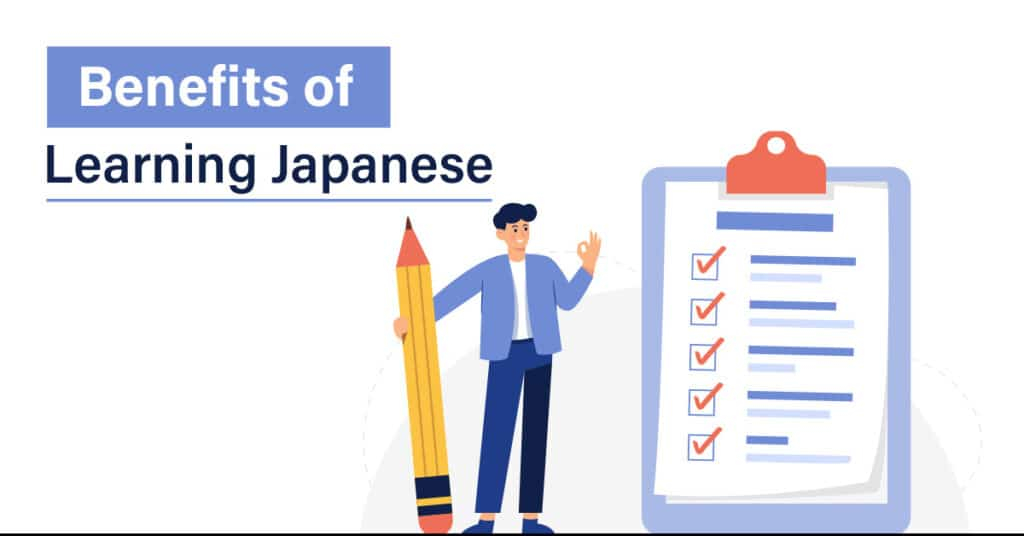
Learning Japanese offers a multitude of benefits. Not only does it open up doors for travel and cultural immersion, but it also presents various career opportunities. According to the Japan times, Japan is a 3rd global economic powerhouse, and many multinational companies value employees who can communicate effectively in Japanese. Additionally, Japanese is a language rich in history, literature, and art, providing a deeper understanding of the country’s culture.
Japanese language learning statistics

There are numerous benefits to learning Japanese. Firstly, it allows you to communicate with over 128 million people worldwide, not only in Japan but also in Japanese-speaking communities around the globe. Being able to understand and engage with native speakers on a deeper level enhances cultural exchange and opens the door to meaningful connections.
Secondly, learning Japanese can boost your career prospects. Japan is known for its innovation and technology, and many industries require professionals who can navigate the language and culture. Whether you’re interested in business, technology, or the arts, having Japanese language skills can give you a competitive edge.
Thirdly, learning Japanese can enhance your cognitive abilities. Studies have shown that bilingual individuals have improved memory, problem-solving skills, and overall cognitive function. Learning a new language challenges your brain and keeps it active, leading to improved mental agility and flexibility.
Finding Japanese language classes in your area
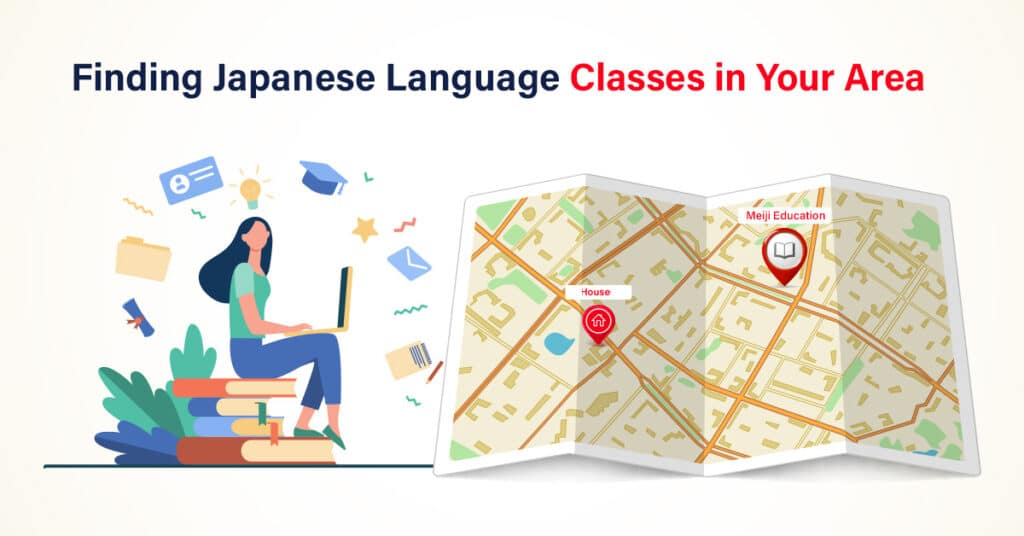
Japanese language learning has been gaining popularity around the world. According to recent statistics, the number of people learning Japanese as a second language has been steadily increasing. In Bangladesh alone, the number of students studying Japanese has risen significantly over the past decade. This trend is mirrored in many other countries, indicating a growing interest in the language and culture of Japan.
Factors to consider when choosing a language class

When it comes to finding Japanese language classes in your area, there are several avenues to explore. One of the most effective ways is to check local language schools, community centers, and universities that offer language courses. These institutions often have experienced instructors who specialize in teaching Japanese and can provide structured lessons to help you progress.
Another option is to look for language exchange programs or conversation groups in your area. These informal settings allow you to practice speaking Japanese with native speakers while also helping them learn your native language. Language exchange programs are a great way to improve your conversational skills and gain valuable insights into Japanese culture.
Additionally, online platforms and language learning apps have become increasingly popular for their convenience and flexibility. Many reputable language learning platforms offer comprehensive Japanese courses that incorporate interactive lessons, quizzes, and multimedia resources. These online resources provide learners with the opportunity to study at their own pace and access a wealth of learning materials.
Top language schools in your area

Choosing the right language class is crucial to your success in learning Japanese. Below are several key factors to contemplate when deliberating your decision:
- Teaching Methodology: Different language schools employ various teaching methods. Some focus more on grammar and vocabulary drills, while others emphasize conversation and cultural immersion. Consider your preferred learning style and choose a class that aligns with your goals.
- Class Size: The size of the class can impact your learning experience. Smaller classes often allow for more individualized attention from the instructor and increased opportunities for practice and interaction. On the other hand, larger classes may offer a more dynamic learning environment with diverse perspectives.
- Instructor Qualifications: Research the qualifications and experience of the instructors at the language school. Look for teachers who are native speakers or have extensive experience in teaching Japanese as a second language. Their expertise will significantly influence the quality of your learning experience.
- Course Duration and Schedule: Consider the duration and schedule of the language class. Determine whether you prefer intensive courses or longer-term programs that allow for a more gradual learning pace. Additionally, check if the class schedule aligns with your availability and commitments.
- Check the reviews: If you are looking for a good school, you have to know what people think about this school. Simply check the previous customer’s feedback about the company so that you can get an idea about school quality.
Online resources for learning Japanese
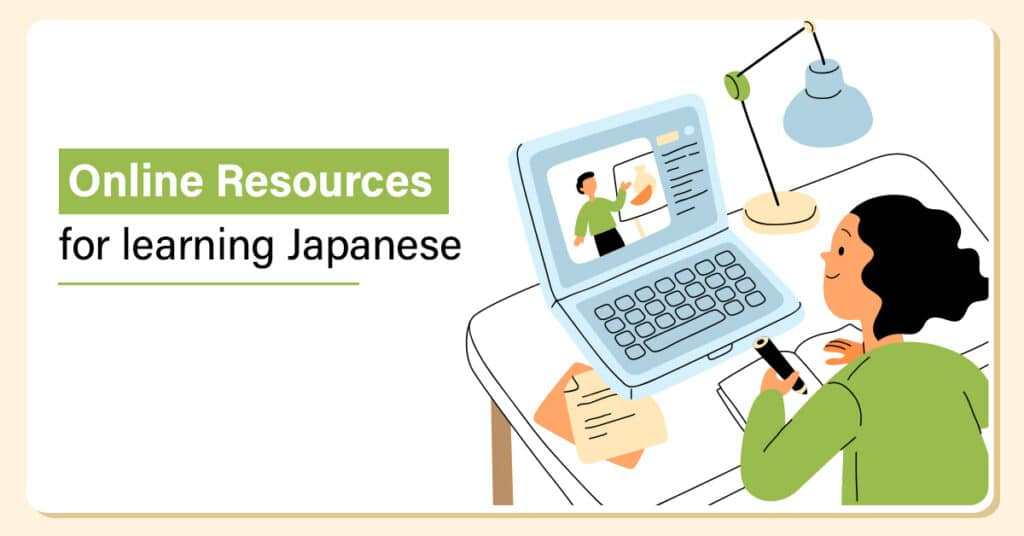
- Meiji Education: Located in Dhaka, Meiji Education offers a range of Japanese language courses for n5 and n4 levels. With experienced instructors and a comprehensive curriculum, students can expect to develop their reading, writing, listening, and speaking skills effectively. The school also help student to get student visa who want to study in Japan.
- Meiji Education, Cumilla: Situated in Cumilla, Meiji Education, Cumilla is renowned for its immersive approach to teaching Japanese. The school provides an environment where students can practice their language skills through real-life scenarios, such as ordering food at restaurants or engaging in everyday conversations. The instructors focus on building practical language skills for everyday use
- Foreign Language Training Center: Located in Barishal, the Foreign Language Training Center specializes in personalized Japanese language instruction. The school offers one-on-one lessons tailored to individual learning styles and goals. This approach allows students to receive personalized attention and progress at their own pace.
- Sakura Japanese Language Academy: located in Sylhet, Sakura Japanese Language Academy offers Japanese language n5 and n4 courses for those people who want to go to Japan for higher education.
- Nippon Academy: located in Chattogram, Nippon Academy offers Japanese language courses of basic level or n5.
Japanese language proficiency tests and certifications
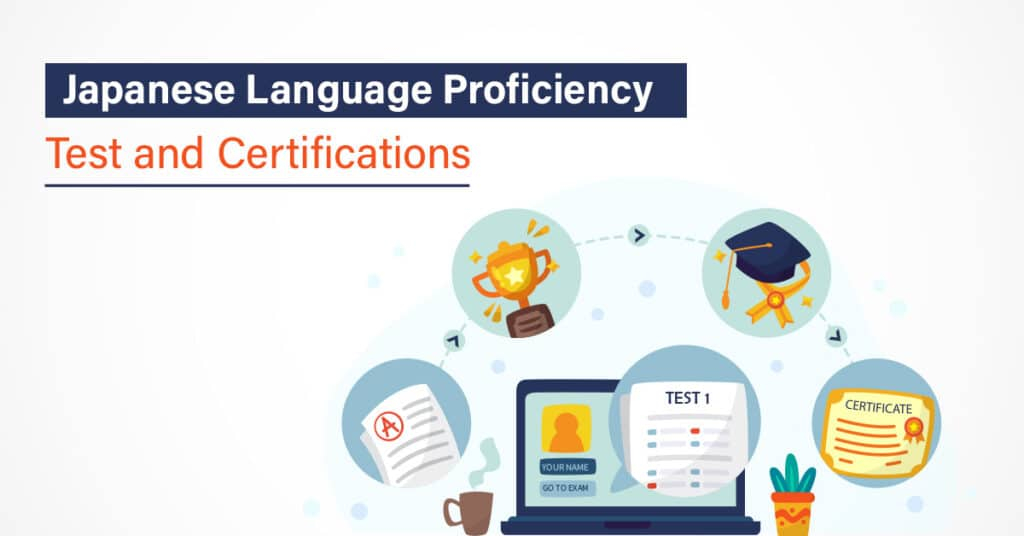
If attending physical language classes is not feasible for you, there are plenty of online resources available to learn Japanese. Here are a few reputable platforms:
- Duolingo: Duolingo offers a gamified approach to language learning, including Japanese. The app provides bite-sized lessons that cover vocabulary, grammar, and pronunciation. Duolingo’s interactive exercises and quizzes make learning Japanese fun and engaging.
- Rosetta Stone: Rosetta Stone is a well-known language learning platform that offers Japanese courses. The program utilizes immersive teaching methods to help learners develop their language skills naturally. Rosetta Stone’s interactive lessons focus on pronunciation, vocabulary, and grammar.
- JapanesePod101: JapanesePod101 is a popular podcast-based platform that covers various aspects of Japanese language learning. The platform offers audio and video lessons, downloadable lesson notes, and interactive quizzes. JapanesePod101 is suitable for learners of all levels and provides a flexible learning experience.
Tips for becoming a confident Japanese speaker

Obtaining a certification in Japanese language proficiency can be beneficial for both personal development and career opportunities. The most recognized Japanese language proficiency test is the JLPT (Japanese Language Proficiency Test). The JLPT measures and certifies individuals’ Japanese language skills across five levels, from N5 (beginner) to N1 (advanced). Many employers and educational institutions recognize JLPT certifications, making them a valuable addition to your resume.
Conclusion

Becoming a confident Japanese speaker requires consistent practice and dedication. Here are several strategic insights to enhance your linguistic acquisition journey:
- Immerse Yourself in Japanese: Surround yourself with Japanese language and culture as much as possible. Immerse yourself in Japanese culture through movies, music, and daily use.
- Practice Speaking: Speaking regularly is crucial for improving your conversational skills. Find language exchange partners or conversation groups where you can practice speaking Japanese with native speakers.
- Read Japanese: Start with simple texts and gradually progress to more complex materials. Reading Japanese will improve your vocabulary, grammar, and comprehension skills.
- Listen to Japanese: Listen to podcasts, watch Japanese TV shows, and engage with authentic Japanese content. This will help you improve your listening skills and familiarize yourself with natural Japanese speech patterns.
- Set Achievable Goals: Divide your language learning into small, attainable steps and celebrate each milestone to stay motivated

For Any Inquery: (880) 1930-350350
By submitting my data I agree to be contacted
Become a Confident Japanese Speaker: Discover the Top Language Classes in Your AreaSave Read More »
